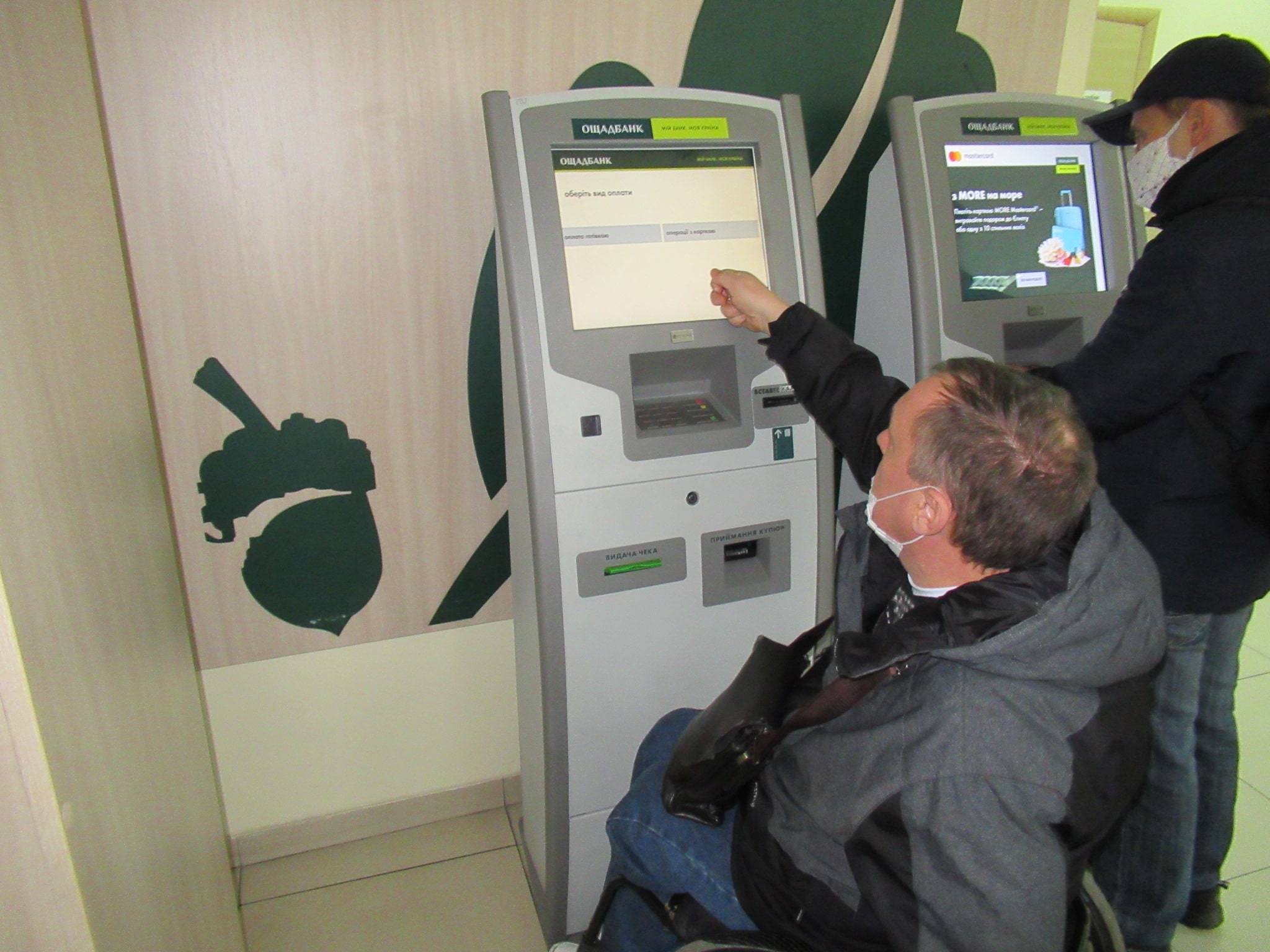
The report on the results of the research "Inclusiveness and Human Rights at the Forefront. Accessibility of e-government services and tools for citizens in Ukraine"
The issue of accessibility of digital infrastructure and digital services concerns everyone in Ukraine. Such accessibility is new to our state and this problem became extremely acute during the COVID19 pandemic, quarantine and lockdown with partial or total ban on movement and travel of citizens. It was then that we all felt how people with disabilities feel, whose mobility can be severely or completely restricted and most public administration services and facilities completely inaccessible.
All people in Ukraine face the problems of remote work, education and financial transactions. But they are especially acute for those 2.7 million people with disabilities (according to the State Statistics Service of Ukraine for 2020), for whom the problems of remote interaction are added to the problems of various types of accessibility. Digital services and infrastructure must be accessible, understandable, safe and convenient for everyone.
The United Nations Development Programme (UNDP) with the financial support of the Government of Sweden in partnership with the Ministry of Digital Transformation of Ukraine is implementing the project “Electronic, Inclusive, Accessible: Supporting Digitalization of Government Services in Ukraine”.
At the request of the United Nations Development Programme in Ukraine, the research agency Info Sapiens in partnership with the NGO “National Assembly of People with Disabilities of Ukraine” (POG “Resource Center “Barrier-free Ukraine”) conducted a study on the accessibility of e-government services and tools for citizens of Ukraine. The aim of the study was to provide a combined assessment of accessibility features and compliance with universal design principles in Ukrainian services along with a brief analysis of the latest European norms and standards in this field.
This study is unique in that it was conducted for the first time in Ukraine and for the first time in such a volume, as well as in the results of the work presented. On 14 September 2021, the research report on digital accessibility in Ukraine – “Inclusion and Human Rights at the Front-End. Accessibility of e-governance services and tools for citizens in Ukraine”.
Within the research of websites and platforms containing elements of electronic governance from November 5 to December 9, 2020 there were tested:
- 82 sites containing elements of electronic services – electronic offices and other sites for receiving electronic services (54 national level sites and 28 local level sites);
- 7 terminals and service stations located in service centres and administrative service centres of Kyiv.
The study was presented by one of its authors, Dmitry Popov – digital accessibility specialist in POG Resource Centre “Barrier-free Ukraine”, SSO “National Assembly of People with Disabilities of Ukraine”, independent consultant on digital accessibility.
A study of the accessibility of websites and platforms containing elements of e-government revealed that none of the analysed sites meet all the criteria for success WCAG 2.0 level AA (DSTU ISO/IEC 40500:2015 “Information Technology. W3C Web Content Accessibility Guidelines (WCAG 2.0)”) and universal design principles.
There was also an analysis of all the problems that were identified during the testing of sites, and a list of the most common accessibility mistakes, which lead to these problems.
The errors were selected according to the criteria of criticality and prevalence.
Critical bugs are defined as those where the site does not meet the WCAG 2.0 level AA criteria.
The most common accessibility errors are associated with non-compliance with five of the seven universal design principles, namely:
- Ensuring equality of use;
- perception and accessibility
- ease and intuitiveness of use,
- flexibility of use,
- tolerance for error.
Some problems of web portals:
- insufficient contrast between text and background – 94% of the sites;
- No/incorrectly stated language – 54% of sites;
- No text labels for segments – 46% of sites;
- captcha has no alternative – 21% of sites.
Two errors make it difficult for anyone to use web portals, even if there are no infringements. These are the use of abbreviations and professional jargon without explanation and the lack of online chat for prompt help.
Users with visual impairment (both total and partial loss of sight) and people with cognitive disabilities are the most frequently affected by the errors identified.
Study of accessibility of terminals / service stations for persons with disabilities and other categories of people with low mobility in service centres and administrative services centres
Some problems with the terminals:
- impossible to use by users/females with complex disabilities without assistance;
- impossible to use independently by persons with visual impairment.
The presented report also contains a number of recommendations aimed at improving the accessibility of e-governance services and tools for citizens in Ukraine.
The extraordinary importance of the conducted research for Ukraine is also clearly evidenced by the fact that the presentation of the report was attended not only by representatives of the Ministry of Digital Transformation of Ukraine and UNDP, but also by a representative of the Parliamentary Commissioner for Human Rights, Advisor-Designee to the President of Ukraine on barrier-free access, Government Commissioner on the Rights of Persons with Disabilities.
Digital Accessibility Specialist of the Resource Centre “Barrier-Free Ukraine” commented on the event. Dmitry Popov: “This project is important because it is the first comprehensive accessibility audit of state websites and administrative service centres (SAC). No one has ever conducted such large-scale testing before.
Personally, I have been involved in digital accessibility since 2014, and I am very pleased that accessibility is beginning to be taken up at a high level. Of course, without the financial support of the United Nations Development Programme, this would not have happened.
Unfortunately, testing has shown that none of the websites meet the accessibility requirements (i.e. the DSTU ISO/IEC 40500:2015 standard “Information Technologies. W3C Web Content Accessibility Guidelines (WCAG) 2.0).
The study resulted in a list of common errors that every website owner can use as a checklist to check their website.
Hopefully, this study will be just the first step towards digital inclusiveness in Ukraine.



